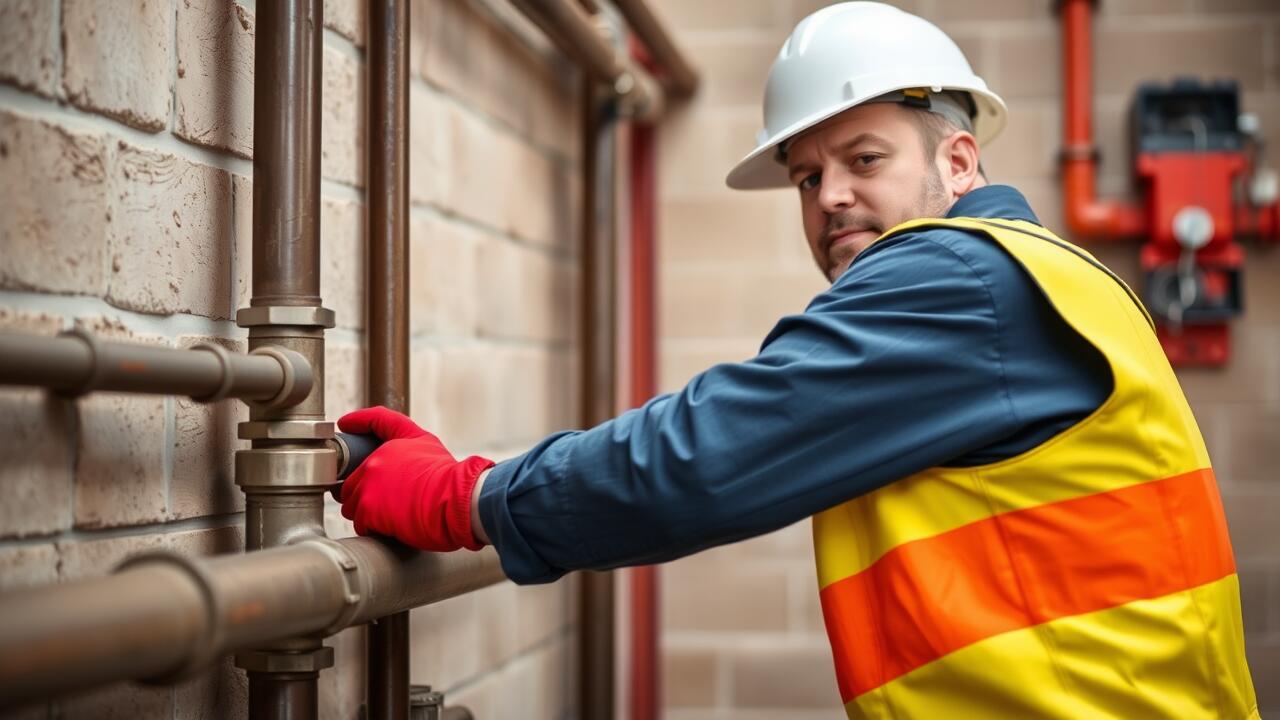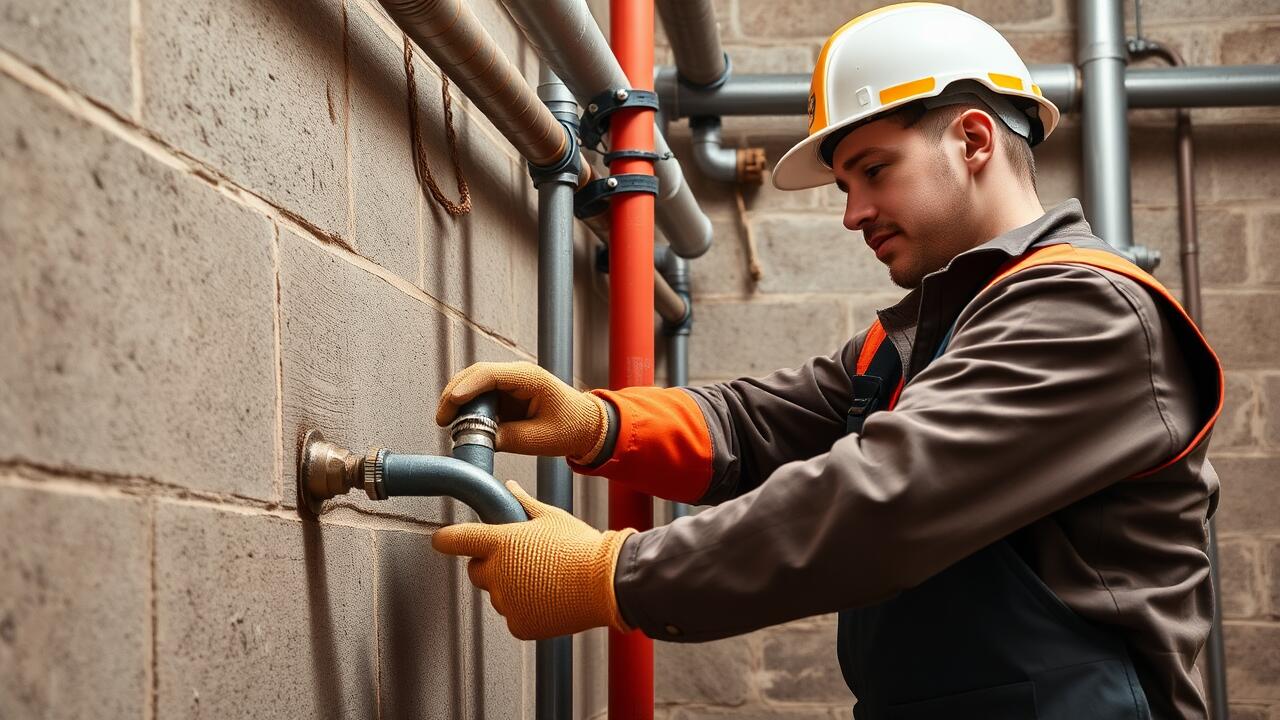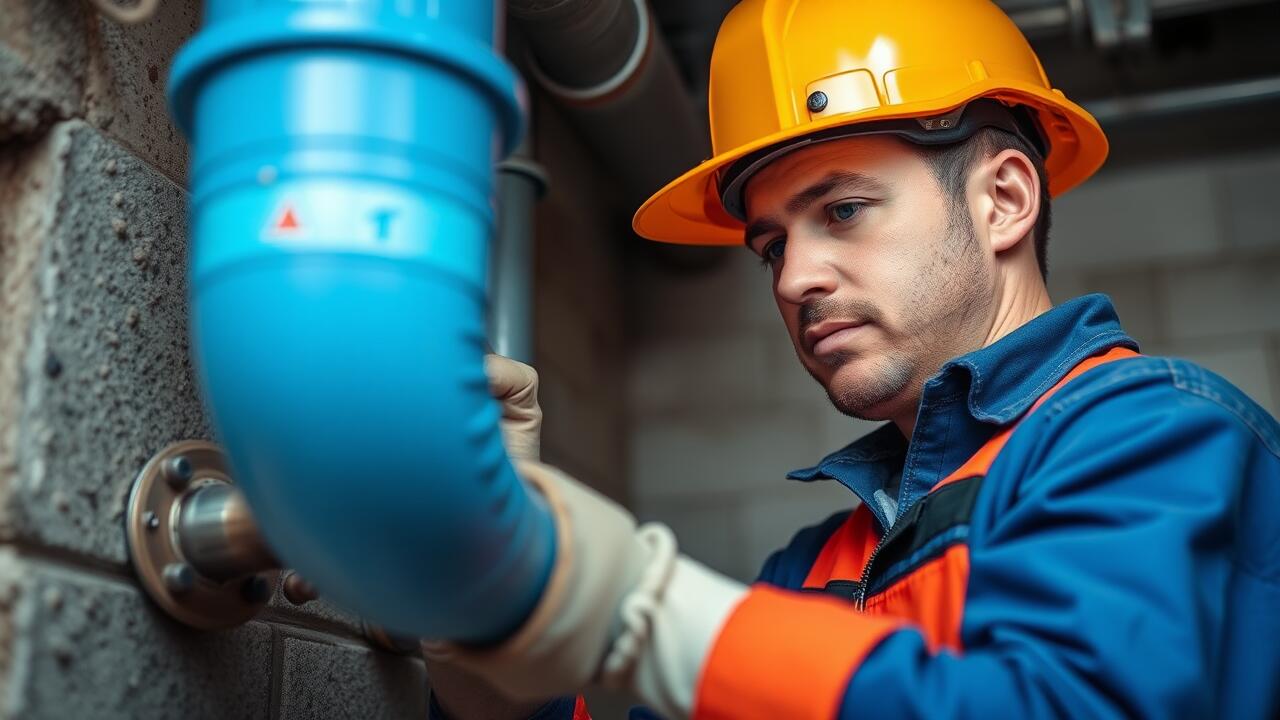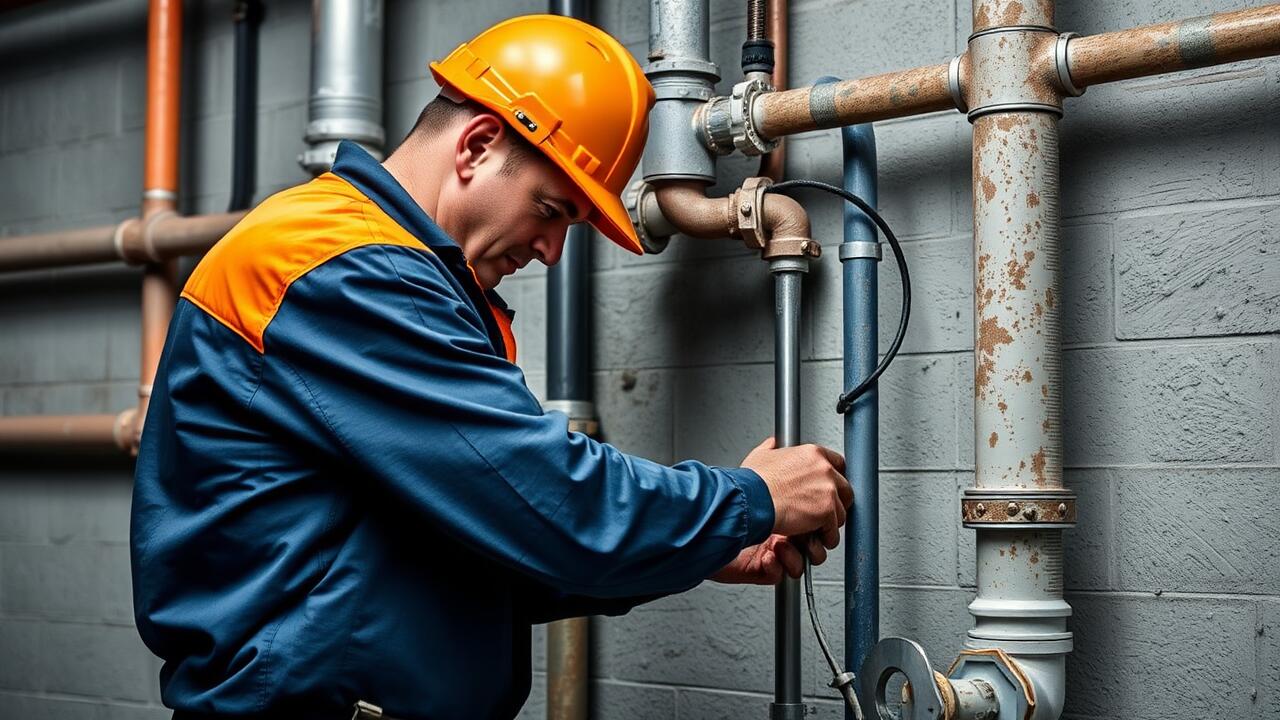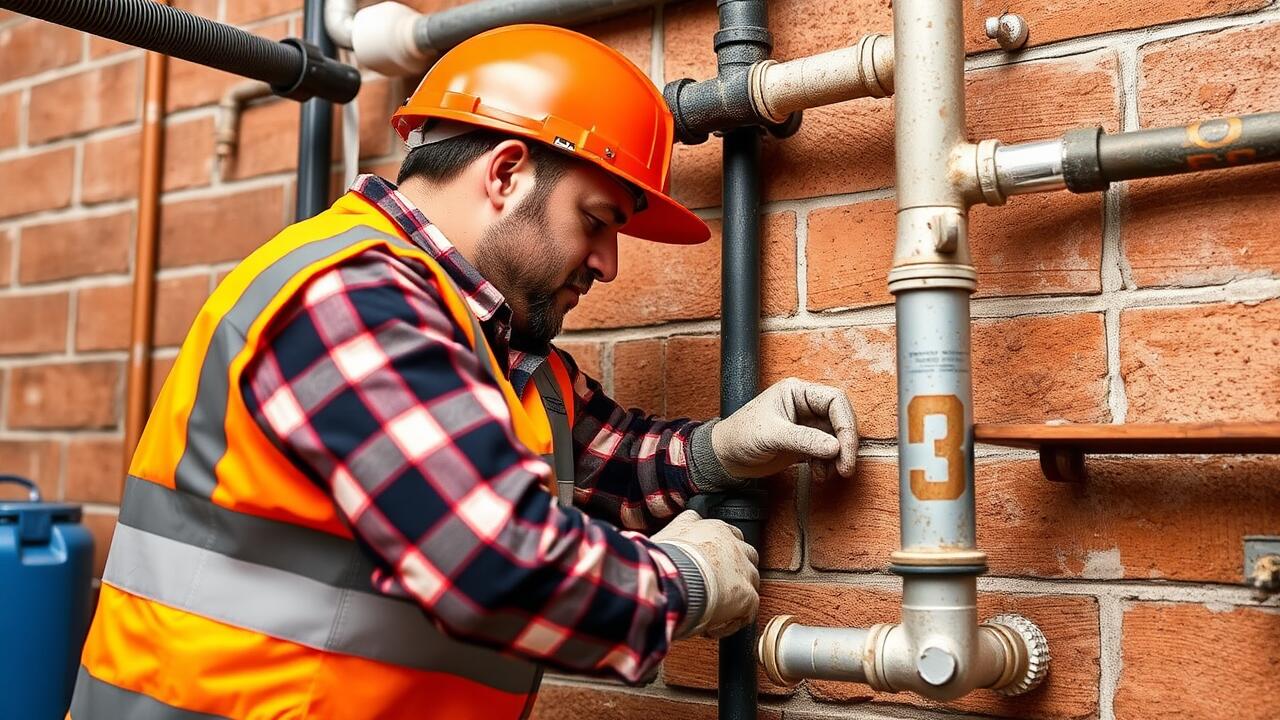
The Case for PEX Piping
PEX piping has emerged as a popular choice for homeowners due to its numerous advantages over traditional materials. The flexible nature of PEX allows for easier and faster installation, often requiring fewer fittings and joints. This flexibility makes it particularly beneficial in tight spaces and complex layouts, reducing the time and labor costs associated with Pipe installation Echo Park, Los Angeles. Additionally, PEX is resistant to corrosion and scale buildup, prolonging the lifespan of the plumbing system.
Another significant advantage of PEX is its ability to withstand freeze-thaw cycles. When water freezes, PEX can expand without cracking, minimizing the risk of burst pipes during cold weather. This characteristic provides peace of mind for homeowners in areas prone to temperature fluctuations. Furthermore, PEX is lightweight and easier to handle, which further improves the efficiency of plumbing projects. Overall, these qualities make PEX a strong contender for modern plumbing needs, appealing to those in search of long-lasting solutions.
Flexibility and Resistance to Corrosion
PEX piping is renowned for its flexibility, allowing for easy installation in tight spaces and around corners without the need for numerous fittings. This feature reduces potential leaks, making it a popular choice for homeowners in Sherman Oaks. The material's ability to expand and contract with temperature fluctuations minimizes the risk of bursts during freezing winters. This characteristic not only saves time during installation but also lowers costs associated with future repairs.
Another key advantage of PEX is its resistance to corrosion. Unlike traditional metal pipes that can rust and degrade over time, PEX maintains its integrity even in varying water quality conditions. This durability is particularly beneficial for regions like West Hollywood, Los Angeles, where water hardness can affect traditional plumbing systems. Homeowners can have peace of mind knowing that PEX piping will last longer without the concerns of corrosion-related issues.
Understanding Galvanized Steel Pipes
Galvanized steel pipes have been a traditional choice for plumbing in many homes, including those in Sherman Oaks. These pipes are coated with zinc to protect against corrosion and extend their lifespan. Over the years, however, their popularity has waned due to the rise of alternative materials that offer better durability and ease of installation. Homeowners often seek options that require less maintenance and are less susceptible to rust and mineral buildup.
Despite these drawbacks, galvanized steel pipes can still be found in older homes. They are known for their strength and ability to withstand high pressure. In a place like Echo Park, Los Angeles, where pipe installation can sometimes be a challenge, many contractors may still encounter these materials. Understanding the pros and cons of galvanized steel is essential for homeowners considering renovations or replacements in their plumbing systems.
Pros and Cons of Using Steel in Plumbing
Steel pipes have been a traditional choice in plumbing systems for many years, mainly due to their strength and longevity. They can withstand high pressure and temperature variations, making them suitable for various applications. When considering pipe installation in West Hollywood, Los Angeles, homeowners often find that galvanized steel offers a robust solution for both water supply and drainage systems. Its ability to resist physical damage is another advantage, ensuring a long-lasting installation in a busy household.
On the other hand, there are some drawbacks associated with steel pipes. Over time, they are prone to corrosion, especially in areas with hard water, which can lead to reduced water quality and flow issues. While galvanized steel initially resists rust, the protective coating can wear down, leaving the pipe vulnerable. This concern may prompt homeowners to explore alternatives that require less maintenance and are less susceptible to corrosion issues, especially when considering pipe installation in West Hollywood, Los Angeles.
Choosing Pipe Material Based on Water Quality
Water quality plays a crucial role in determining the most suitable pipe material for plumbing systems. Hard water, which is prevalent in many areas, including Sherman Oaks, can lead to mineral buildup in pipes. This buildup can reduce water flow and lead to frequent maintenance issues. Certain materials, such as PVC or PEX, are less susceptible to scaling compared to traditional metal pipes, making them a better choice for homes facing hard water challenges.
When considering pipe installation, the interaction between different materials and water quality should be a priority. For instance, galvanized steel pipes can corrode over time, especially in harsh water conditions. By opting for alternatives like PEX or CPVC, homeowners may avoid complications that arise from corrosion and scaling. Those considering pipe installation in Echo Park, Los Angeles, should carefully assess their water quality and consult a plumbing professional to ensure optimal material selection.
How Different Materials React with Hard Water
Water quality plays a crucial role in determining the best pipe material for your home, especially in areas with hard water, like Sherman Oaks. Hard water contains high levels of minerals, particularly calcium and magnesium. These minerals can lead to scale buildup within pipes, which can reduce water flow and efficiency over time. Certain materials, such as PVC or PEX, are more resistant to these deposits, while others, like galvanized steel, may experience increased corrosion and reduced lifespan when consistently exposed to hard water.
When considering pipe installation Echo Park, Los Angeles, it is essential to evaluate how different materials react to hard water conditions. For instance, copper pipes may develop a patina that can affect water quality, while PEX pipes remain largely unaffected by mineral buildup. Understanding these interactions allows homeowners to make informed decisions, ensuring longevity and optimal performance of their plumbing systems in the face of challenging water conditions.
FAQS
What is PEX piping and why is it recommended for homes?
PEX piping, or cross-linked polyethylene, is a flexible and durable pipe material that is resistant to corrosion and scale buildup, making it ideal for residential plumbing. Its flexibility allows for easy installation and fewer fittings, which can reduce the risk of leaks.
What are the main advantages of using galvanized steel pipes?
Galvanized steel pipes are known for their strength and durability. They can withstand high pressure and are resistant to physical impacts. However, they can be prone to corrosion over time, which may lead to water quality issues.
How does the water quality in Sherman Oaks affect my choice of pipe material?
The water quality in your area can significantly impact the longevity and performance of your plumbing system. For instance, hard water can lead to mineral buildup in certain types of pipes, so materials like PEX that resist scale formation may be better suited for homes with hard water.
Are there any specific considerations for choosing between PEX and galvanized steel?
When choosing between PEX and galvanized steel, consider factors such as your home’s water quality, installation costs, and long-term maintenance. PEX is generally easier to install and maintain, while galvanized steel may be better for high-pressure applications but requires more upkeep.
How can I determine if my home needs a plumbing upgrade?
Signs that your home may need a plumbing upgrade include frequent leaks, low water pressure, discolored water, or the presence of old, outdated piping materials. Consulting with a professional plumber can help assess your situation and recommend the right pipe material.
